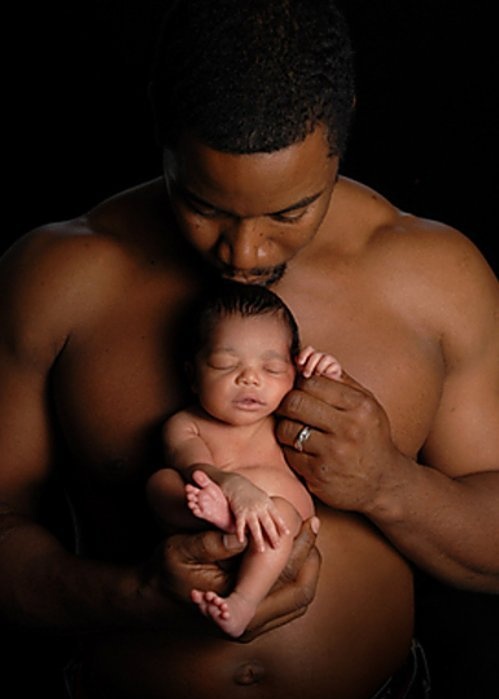Most portrayals of men in our popular culture don’t attempt to present men as ‘loveable’. But Loving the men around us, and encouraging them to love themselves, is an important part of redefining masculinity as healthy and healing.
 In Part 1, I talked about the radical idea that manhood is something to be genuinely proud of. Reclaiming the word Macho to describe a genuine, healthy masculine pride is part of creating a cultural space for men to celebrate themselves and each other in a meaningful way.
In Part 1, I talked about the radical idea that manhood is something to be genuinely proud of. Reclaiming the word Macho to describe a genuine, healthy masculine pride is part of creating a cultural space for men to celebrate themselves and each other in a meaningful way.
Macho means being proud of being a man. But it’s been co-opted in our popular culture to describe a boorish, hateful, arrogant manhood; a toxic masculinity. In reality, there’s a lot to love about men and manhood. Self love is the foundation of the New Macho.
The Sacred Masculine
Every man should have the opportunity to feel pride in himself, just as he is, as part of a deep and abiding self love. It can be a powerful, radical act of self love to redefine Macho to mean loving yourself as a man. To mean taking pride in whatever incarnation of manhood and masculine energy you embody, retaking the ways that masculinity can be expressed, accepted and admired in the world. Women’s groups have been saying for decades that the Goddess is in every woman; that femininity is whatever individual women are. The same can be true of men: that each is a God, each a perfect incarnation of masculinity, just as he is.
In our popular culture, men are often portrayed as incompetent fathers and husbands, as bumbling and clueless with women at best, devious, dangerous and manipulative at worst. But masculinity isn’t toxic. Men aren’t toxic. Any expression of masculinity as toxic, or portrayal of men as such, is a perversion of the Sacred Masculine archetype. The archetype of masculinity is a fundamental truth of human experience, something that every single person feels and lives within themselves.
The archetype of masculinity is timeless. But modern men have been surviving on hand-outs of which expressions of masculine energy are considered, well, masculine. Which ‘manhoods’ are allowed to lay claim to Manhood, and who is allowed to feel pride about being a man.
Masculine Energy
In our culture, we have a tradition of telling men that expressing themselves emotionally isn’t OK. Certain emotions are simply not masculine. Some of the most basic of human experiences are denied to men… especially if they want to conform to acceptable standards of manhood, the Old Macho. It’s acceptable for a man to express anger, aggression, and assertion.
Assertion and aggression are part of the sacred masculine, part of masculinity itself, and must have a healthy outlet in the lives of individual men. Otherwise, this energy will come out in uncontrollable bursts and eruptions, held tightly inside and under increasing pressure. That’s when masculine energy turns to violence. But anger can’t be the only outlet for the expression of emotion. All men feel fear, pain, sadness, grief, shame, etc… and are taught from early on that they can express those feelings only as anger. Men are taught they have to hide important parts of themselves. Anger is the only accepted male emotion, sadness must be hidden. But even anger’s expression must be curtailed, or hidden, or excused.
There are healthy ways to express the assertive energy of masculinity, that are available to men in our society… but there aren’t many. Sports often just isn’t enough, even though it’s been augmented to include not just physical exertion and competitiveness, but also loyalty, honor and identity, as in sports fans who genuinely love their teams. Video games sometimes aren’t enough, even the dark, cathartic ones like Grand Theft Auto in which the destructive, violent, dominating nature of masculinity can be expressed, and thereby exorcised.
Battle rap gets close, as it provides an arena for anger, violence, competitiveness and hate to be expressed by one performer on behalf of the community, bringing aspects of brotherhood and love into the act of healthy expression, and cleansing of anger from the hearts of everyone present, or watching on Youtube at home. What else is there for men in the modern world? The ‘thrill of the chase’ on Tinder?
There has to be more.
This healthy expression of male energy is often portrayed as pathetic. Gamer guys often feel they have to hide their habits, even though those habits may be extremely healthy for them, very life giving. Maybe even lovely and beautiful.
Beautiful Manhood, Beautiful Men
The New Macho sees that beauty, sees the efforts of men and their successes. That’s what redefining Macho is all about. Macho—pride about manhood—isn’t just about masculinity, it’s about men; individual male humans who are living this divine energy every day and doing a great job at it and ought to be really, really proud of themselves. Men who have many great things about them, positive, inspiring, incredible things, things that improve the world around them, and improve life for those they care about.
The New Macho involves clearing out the toxic definitions of men, manhood and masculinity that have hurt so many people. Feeling the wounds of toxic masculinity—and the wounds of being told that our masculinity is toxic, which it is not—is vital to healing. Feeling the hurt, the loss, the grief, the sadness; learning to express those things as they are instead of trying to express them through anger, and ultimately embracing and celebrating the men around us as full, emotional beings.
Men who are hurting, and choose to heal. Men who are afraid, and choose to keep going. Men who are about to give up… and see their brothers hanging on, and are inspired to do the same. Men who are an inspiration to everyone around them, who are providing their positive, healthy, life-giving presence to the world, and who are improving the world by doing so. Men whose lives are based in love of themselves, and whose actions resonate with love for the world.
The strongest, most healthily masculine men aren’t the outwardly-tough ones, or the hateful ones, or the dangerous ones. They’re the tender ones, the gentle ones, the confident and playful and goofy ones. Developing those qualities requires meeting masculine energy within yourself and expressing it in a healthy way, which is a profound act of self love.
Being proud of yourself isn’t possible unless you love yourself. Pride is based on love. Our society is finally lumbering towards accepting individual men, just as they are. But it has to happen on an individual basis, within individual men. That’s why making a space for men to celebrate themselves, express pride about themselves, is so important; why Macho need not be a dirty word anymore, doesn’t need to be associated with hate or fear or anger, and should be what it is: a description of pride. Pride is based on love.
When it comes to men, there is a lot to love.

